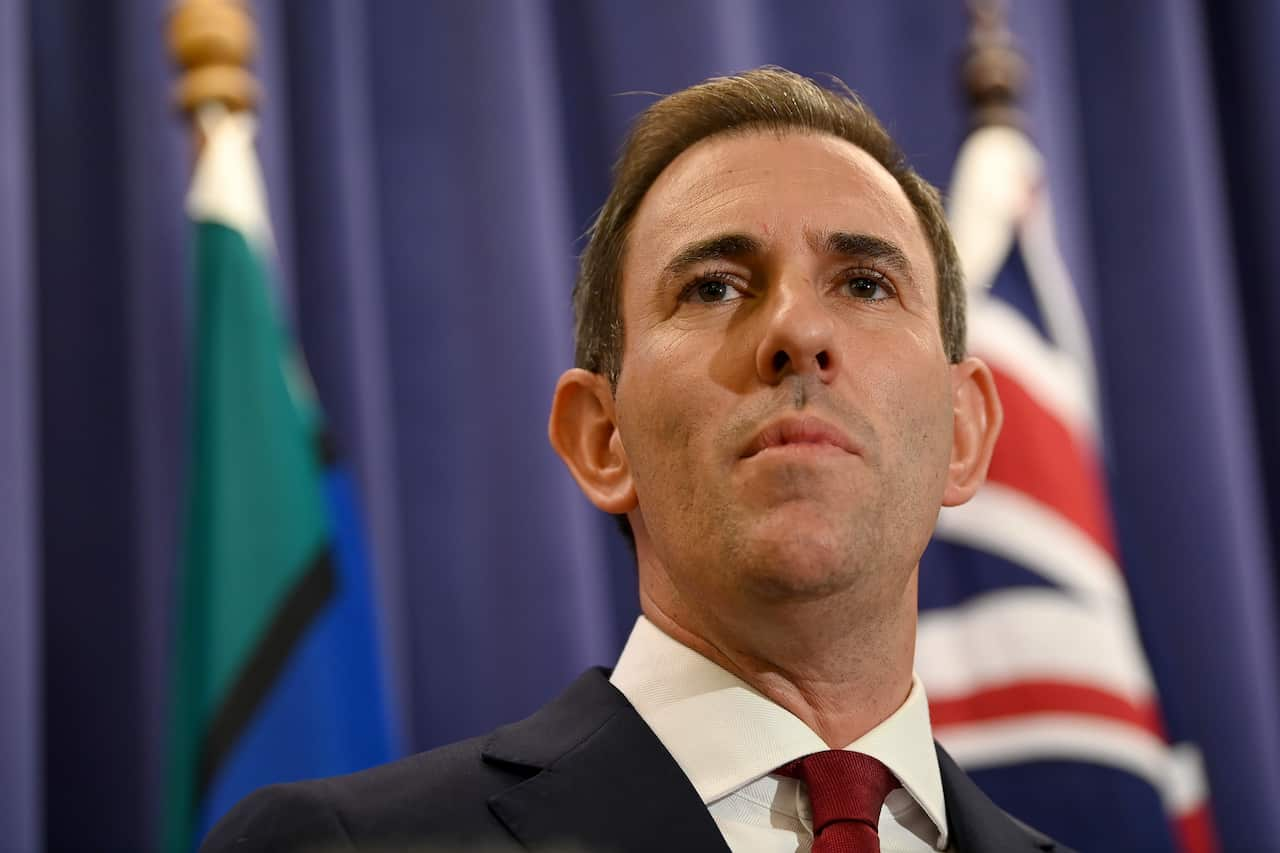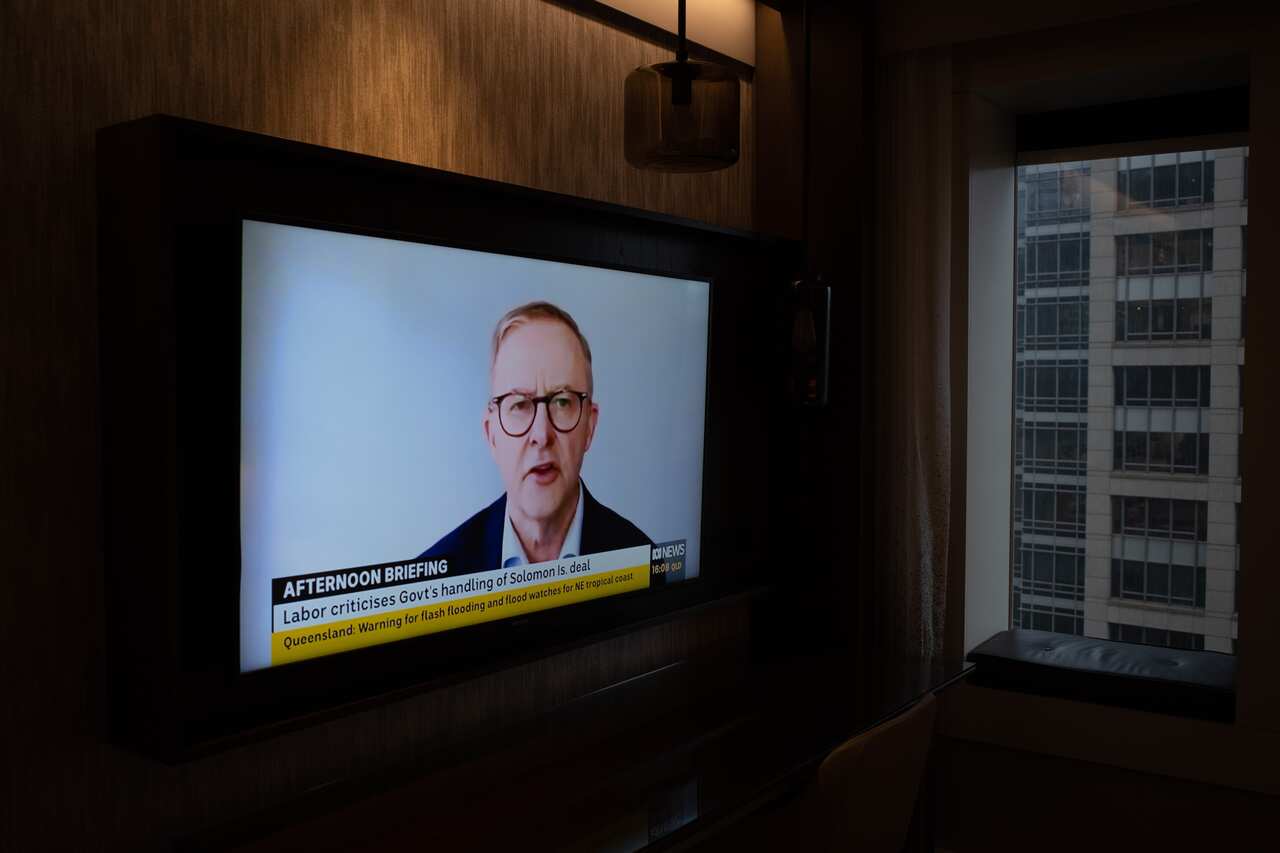Prime Minister Scott Morrison has defended his government's economic record as inflation figures spark fears of an interest rate rise during the election campaign.
On day 18 of the election campaign, Mr Morrison stressed that the increased cost of living in Australia has not been the fault of his government but instead pointed to external issues such as Russia's invasion of Ukraine.
"We know where these pressures are coming from. We know the pressures of rising costs of living, of interest rate," he said on Thursday.
"[They] are coming from not just the war in Ukraine, which has caused an energy price rise the likes of which we have not seen for many decades, [but] that is [also] coming from the pandemic."
The annual rate of inflation has soared to its highest level since 2001, fuelled by record petrol prices and increased dwelling construction costs, according to data released by the Australian Bureau of Statistics on Wednesday.
The consumer price index (CPI) surged by 5.1 per cent over the past year — up from 3.5 per cent — and rose 2.1 per cent for the March quarter.
Mr Morrison praised Australians for being responsible with their spending during "almost unprecedented" times as seen in the economy.
"The amount of capital, of finance, sitting on Australians' household balance sheets and business balance sheets today is almost unprecedented," he said.
"And they've done that because they've been wise, and we've been wise stewards of taxpayers' money as well to ensure our economy is set up to perform in a very, very challenging environment."
Labor on the inflation attack
Opposition Treasury spokesperson Jim Chalmers has accused the Coalition of its economic management after the inflation figures were revealed, stoking fears that interest rates will soon follow upwards.
Mr Chalmers told reporters the financial strife for Australians will continue if this government is re-elected.
"The big risk of re-electing Scott Morrison is another three years of attacks on real wages, which makes it harder and harder to keep up with the skyrocketing costs of living and to pay increasing costs on your mortgage," he said.

"Scott Morrison claims to be good at managing the economy. It is not good economic management if Australians cannot get ahead," he said.
"It is not good economic management if Australians are falling further and further behind."
Labor's economic plan, if it wins office, would include an audit of "waste and rorts" as well as crackdowns on multinational companies avoiding tax in a bid to make $5 billion in budget savings.
Anthony Albanese to emerge from isolation
Federal Opposition leader Anthony Albanese is set to return to the campaign trail on Friday after being forced to isolate with COVID-19.

Mr Albanese tested positive for the virus last Thursday, forcing him off the election trail for a week while he campaigned from the confines of his Sydney home.
He will officially launch the Labor Party's campaign in Perth on Sunday and says he is looking forward to coming out of isolation, but has been advised to cut down on his work hours.
"My doctor tells me I have to take things easy, particularly in the first few days to not do the 16 and 20-hour days that I was doing," he told WSFM Sydney radio.
"But it will be good to be out and about," he said.
One Nation wants to punish Liberals
Pauline Hanson has indicated One Nation will not preference only Liberals in key seats after she accused the government of doing a "dirty deal with the devil" by telling voters to preference Jacquie Lambie Network in the Tasmanian Senate race.
Nationally, One Nation is polling around three to 4.5 per cent, but Queensland specific polling has previously had the far-right minor party primary vote in the low 10s to mid-teens.
Senator Hanson said she would look to punish Liberals in marginal seats, particularly in Queensland and Victoria.
"Unfortunately, left-leaning Liberals aren't giving conservative Australian voters much reason to hope their party will act differently to Labor," she said.
Deputy Prime Minister Barnaby Joyce acknowledged the importance of preference flows from One Nation, with LNP members in Queensland relying on them to get over the line.
"The minority [of candidates] actually get past the post on first preferences," he said.
"So preference deals are inherently important. We rely on One Nation preferences in areas and certainly, the Liberal Party relies on us to give them the numbers to be the government."
In Queensland, more than two-thirds of One Nation preferences flowed to the Coalition.
One Nation says it still plans to support Liberal conservatives and Nationals over ALP candidates.
While One Nation has indicated where its preferences would flow in key seats, it is still only a suggestion to voters ahead of the election.
A study of how-to-vote card use in 2016 and 2019 showed less than five per cent of One Nation voters followed the party's card.

